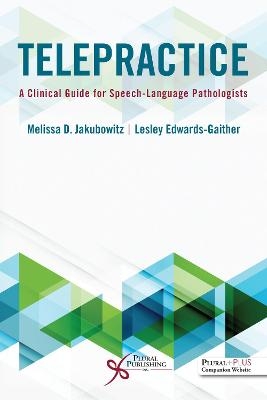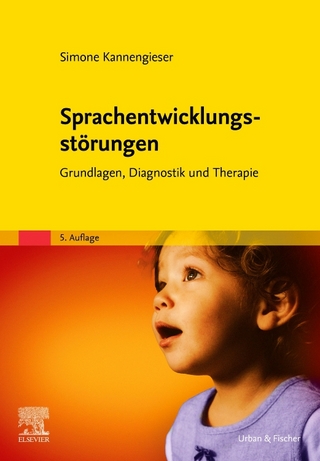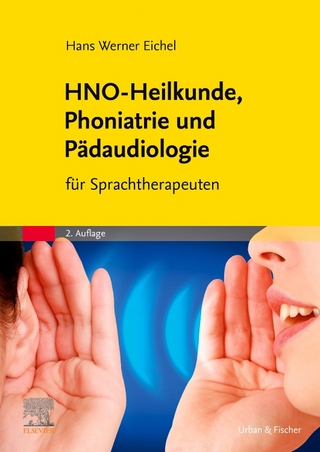
Telepractice
Plural Publishing Inc (Verlag)
978-1-63550-380-7 (ISBN)
In an era of increased distance learning and digital services, Telepractice: A Clinical Guide for Speech-Language Pathologists offers speech-language pathologists (SLPs) the crucial information they need to provide successful telepractice services. Written with the viewpoint of post-COVID 19 application, this professional text includes everything SLPs need to know about telepractice and can assist both veteran and novice SLPs adjust to working via telepractice as the new normal.
Within this compact "how-to" guide, clinicians will find a range of valuable resources, including an overview of best evidence-based practices for teletherapy, specific therapeutic techniques and methods for engaging clients, a discussion of the cultural and linguistic considerations to keep in mind when assessing and treating clients via telepractice, and information on working with parents, teachers, paraprofessionals, eHelpers, and other facilitators. The authors also share their extensive experience and delve into the entrepreneurial aspects of telepractice to help clinicians building a teletherapy business to set themselves up for success.
Key Features
Case scenarios representing clients at various ages, from early intervention through adulthood, that demonstrate client engagement
Checklists, rubrics, models, and frameworks that will support the utilization of telepractice
A simple business plan and a rate calculator, along with all the information necessary to be a successful telepractitioner
A PluralPlus companion website with videos of high-quality teletherapy sessions and downloadable versions of practical resources for clinicians
Melissa Jakubowitz, MA, CCC-SLP, BCS-CL, F-ASHA, is the owner of eLiveNow, a telepractice company. Prior to eLiveNow, she owned a successful private practice that she exited after 20 years. She is an experienced presenter in the area of telepractice and child language. Melissa is an ASHA Fellow and holds CSHA Honors. She has served on numerous boards and committees for ASHA and CSHA. Most recently, she serves as the Chair of ASHA Board of Special Interest Group Coordinators. **** Lesley Edwards-Gaither, PhD, CCC-SLP, has over 12 years of telepractice experience, and has researched, managed, and supervised many aspects of telepractice. Dr. Edwards-Gaither received her PhD from Howard University, Washington DC. She is currently an adjunct professor at George Washington University and an independent eLearning consultant developing online courses and training programs for speech-language pathology. Her areas of research include the intersections of culture, communication, and technology.
Preface
Acknowledgements
Reviewers
Chapter 1. An Introduction to Telepractice
Telepractice Past and Present
History of Telepractice
Telepractice Terminology
Pandemic and Health-Emergency Implications
Resources
Resuming In-Person Services
Summary
References
Chapter 2. Technology
Internet Speeds
Computer Specifications
Headsets
Cameras
Videoconferencing Platforms
Service Delivery Models
Face-to-Face
Blended Learning
Hybrid
Hybrid Versus Blended Learning
Telepractice
Determining the Service Delivery Model That Best Suits the Client
Addressing Absenteeism
Future Directions
Strategies to Improve Telepractice Models
Future Directions in Telehealth
Artificial Intelligence
Speech Recognition
Ten Tips to Make Connections Using Technology
References
Chapter 3. Models of Service Delivery
Introduction
A Review of Literature and Telepractice Research
Client Candidacy
Apps and Websites
Cultural and Linguistic Considerations for Teletherapy
Culture and Technology
Preference for Digital Communication
Technology to Address Linguistic Considerations
References
Chapter 4. Assessments, Evaluations, and eHelpers
Introduction
Research and Evidence-Based Practice
Collaboration
Managing Technology
Parent Coaching
Training
Assessments and Evaluations
Set-Up for Successful Administration of Assessments
Standardized Assessment
Modifications
Report Writing
References
Chapter 5. Engaging Clients: Case Scenarios
Introduction
Case Scenario: Early Intervention
Background Information
Goals and Objectives
Telepractice Applications
Therapy and Materials
Challenges and Lessons Learned
Case Scenario: Preschool
Background Information
Telepractice Applications
Critical Thinking Questions
Case Scenario: Culturally and Linguistically Diverse Clients
Background Information
Telepractice Applications
Critical Thinking Questions
Case Scenario: Elementary
Background Information
Telepractice Applications
Critical Thinking Questions
K-12 Case Scenario: Group Language Intervention
Background Information
Telepractice Applications
Critical Thinking Questions
Case Scenario: Middle School
Background Information
Goals and Objectives
Telepractice Applications
Therapy and Materials
Challenges and Lessons Learned
Case Scenario: High School
Background Information
Goals and Objectives
Telepractice Applications
Therapy Materials
Challenges and Lessons Learned
Case Scenario: Adult
Background Information
Goals and Objectives
Telepractice Applications
Therapy Materials
Challenges and Lessons Learned
References
Chapter 6. Telepractice as a Business
Introduction
The Business Plan
Setting Therapy Rates
Marketing for Private Clients
Marketing to Schools
Setting Up for Success
Safety of Clients
References
Chapter 7. Confidentiality, Ethics and Legal/Regulatory Issues in Telepractice
Introduction
Code of Ethics
State Regulations
Licensure Compacts
The ASLP-IC:
Telepractice and Licensure Compacts
Telepractice Opportunities Related to the ASLP-IC:
Federal Legal and Regulatory Issues
References
Index
| Erscheinungsdatum | 19.04.2022 |
|---|---|
| Verlagsort | San Diego |
| Sprache | englisch |
| Maße | 152 x 229 mm |
| Themenwelt | Medizin / Pharmazie ► Gesundheitsfachberufe ► Logopädie |
| ISBN-10 | 1-63550-380-9 / 1635503809 |
| ISBN-13 | 978-1-63550-380-7 / 9781635503807 |
| Zustand | Neuware |
| Haben Sie eine Frage zum Produkt? |
aus dem Bereich


